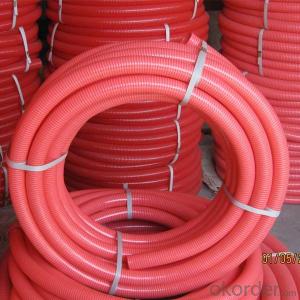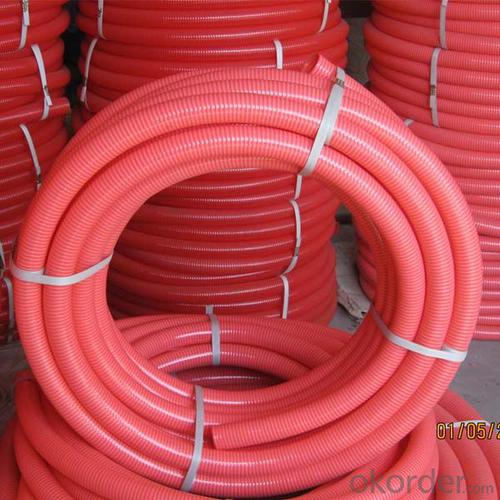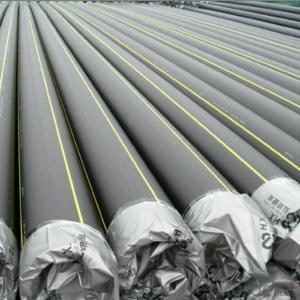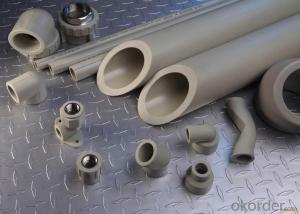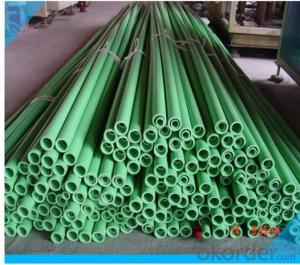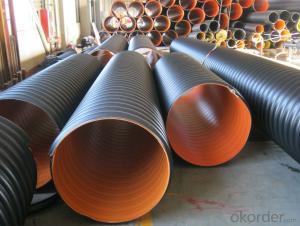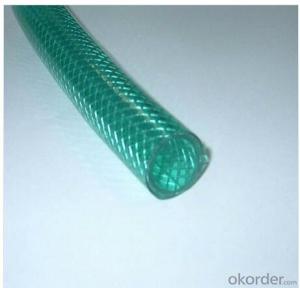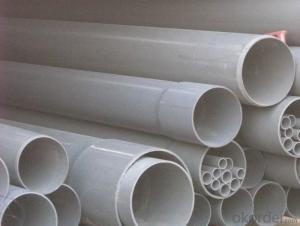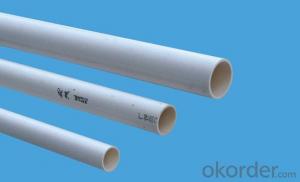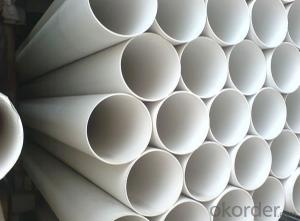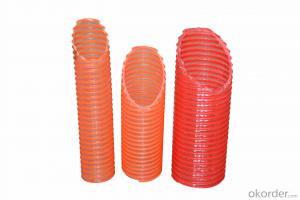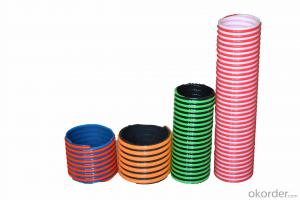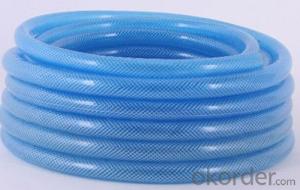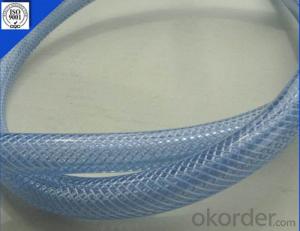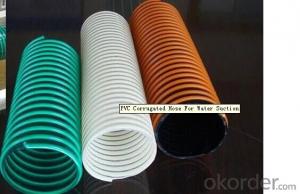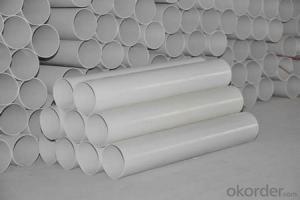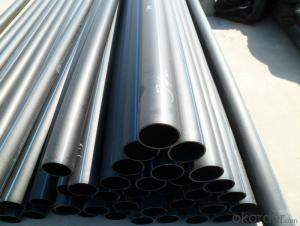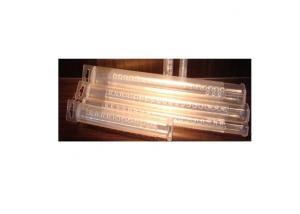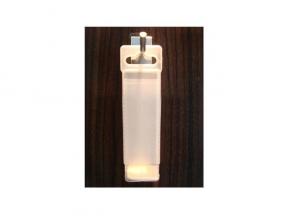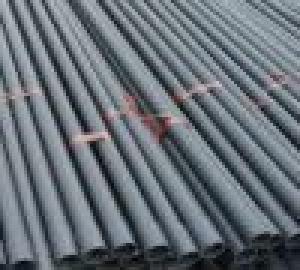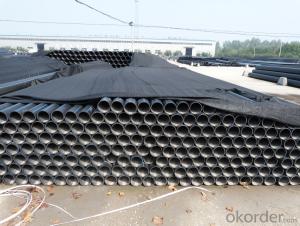PVC Flexible Suction Hose - Plastic Tubes
- Loading Port:
- Qingdao
- Payment Terms:
- TT OR LC
- Min Order Qty:
- -
- Supply Capability:
- 10000ROLL roll/month
OKorder Service Pledge
OKorder Financial Service
You Might Also Like
Key Features: Strong, flexible, crush, abrasion and weather resistant. Working Temperature: -5°C-65°C
APPLICATIONS: 1) the products are used for conveying water, oil, gas under normal working condition. CHARACTERISTICS: It is flexible, durable, non-toxic, without odor, and resistant to high pressure and erosion. Notes for storage
Notes for disposal
APPLICATIONS: 1) the products are used for conveying water, oil, gas under normal working condition. CHARACTERISTICS: It is flexible, durable, non-toxic, without odor, and resistant to high pressure and erosion. Notes for storage
Notes for disposal
|
- Q: How are plastic tubes labeled with barcodes?
- Plastic tubes are labeled with barcodes by using barcode labels or stickers that are specifically designed for plastic surfaces. These labels are usually made of durable materials, such as polyester or polypropylene, and have a strong adhesive backing to ensure they stay attached to the tube. The barcode information is printed onto the label using thermal transfer or direct thermal printing technology. This allows for accurate and scannable barcodes that can be easily read by barcode scanners or other automated systems.
- Q: What are the advantages of using plastic tubes in the electronic packaging industry?
- There are several advantages of using plastic tubes in the electronic packaging industry. Firstly, plastic tubes are lightweight, which makes them easy to handle and transport, reducing shipping costs. Secondly, plastic tubes provide excellent protection against moisture, dust, and other contaminants, ensuring the safety and longevity of electronic components. Additionally, plastic tubes are customizable, allowing for various sizes and shapes to accommodate different electronic devices. Lastly, plastic tubes are cost-effective compared to other packaging materials, making them a cost-efficient option for the electronic packaging industry.
- Q: Do plastic tubes have any limitations in terms of static electricity buildup?
- Yes, plastic tubes can have limitations in terms of static electricity buildup. Depending on the type of plastic used, some tubes can generate and accumulate static electricity more easily than others. This can be a concern in certain industries or applications where static discharge could cause damage or disruption to sensitive equipment or materials. To mitigate this, anti-static additives or treatments can be incorporated into the plastic during manufacturing to reduce static buildup.
- Q: I have a hole ins a plastic tube that contains water how do I seal the hole?
- You may find that you could A: use a water bed repair patch and than wrap tightly with duct tape or B: get a tube of some silicone like they use to repair aquariums. apply liberally and than wrap with plumbers tape. Let it dry as good as possible before putting any real force to it. Good Luck!
- Q: Our hamster loves to make a bed in the plastic tube and not in the bed I bought (typical!). We clean the cage once a week and empty the tubes. Should we do this or should we just leave all the sawdust where it is?
- Mine did exactly the same thing. Yes clean the tube, take out all the sawdust and bedding. But save a little of the old sawdust (just not some that's been pee'd on. Then clean the tube with disinfectant. Put the little bit of dirty sawdust back into the tube. The add clean sawdust to the rest of the cage. put the bedding into the bed you bought, but chances are she'll just move it back into the tube
- Q: Are plastic tubes suitable for hot-fill applications?
- No, plastic tubes are not suitable for hot-fill applications as they can deform or melt when exposed to high temperatures.
- Q: I've just started my phlebotomy class and have 8 different colors tubes which are Yellow (Sterile tube), Light Blue, Red,Gold(SST), Light Green(PST), Green,Lavender, and Grey. I'm having trouble understanding what tubes go where.... like I know Red tube is used for Chemistry and Light Blue is used for Coagulation..... The book really isan't that great so I'm kind of confused... Also I've looked on the internet and they mention a pink tube that is used for blood going to the blood bank but there is no pink tube mentioned anywhere in my book. If anyone could take the time to help me out with this I would appreciate it so much and gladly give you the 10 points...... My instructor is great at the hands on portion of actually drawing the blood but lacking very much so in the lecture portion.... so as you can imagine I'm lost! Thanks so much!
- They pertain to the different tests they are used to draw and any additives that are (or aren't) in the tube.
- Q: Are plastic tubes resistant to impact strength?
- Yes, plastic tubes are generally resistant to impact strength. They are designed to withstand various forms of impact without breaking or shattering easily. However, the impact resistance may vary depending on the type and quality of the plastic used in the tubes.
- Q: Are plastic tubes resistant to punctures or tears?
- Plastic tubes are generally resistant to punctures and tears due to their durable nature and flexibility. However, this may vary depending on the specific type and thickness of the plastic used and the amount of force applied.
- Q: Are plastic tubes resistant to oil and grease?
- Yes, plastic tubes are generally resistant to oil and grease.
Send your message to us
PVC Flexible Suction Hose - Plastic Tubes
- Loading Port:
- Qingdao
- Payment Terms:
- TT OR LC
- Min Order Qty:
- -
- Supply Capability:
- 10000ROLL roll/month
OKorder Service Pledge
OKorder Financial Service
Similar products
Hot products
Hot Searches
Related keywords
